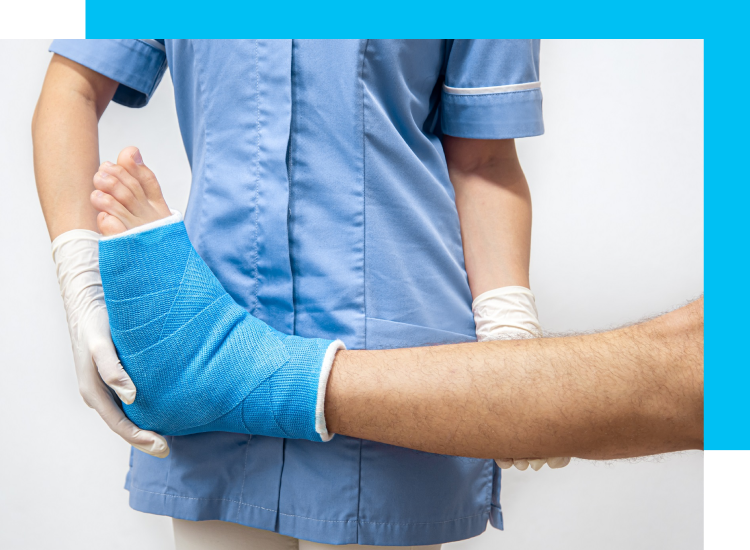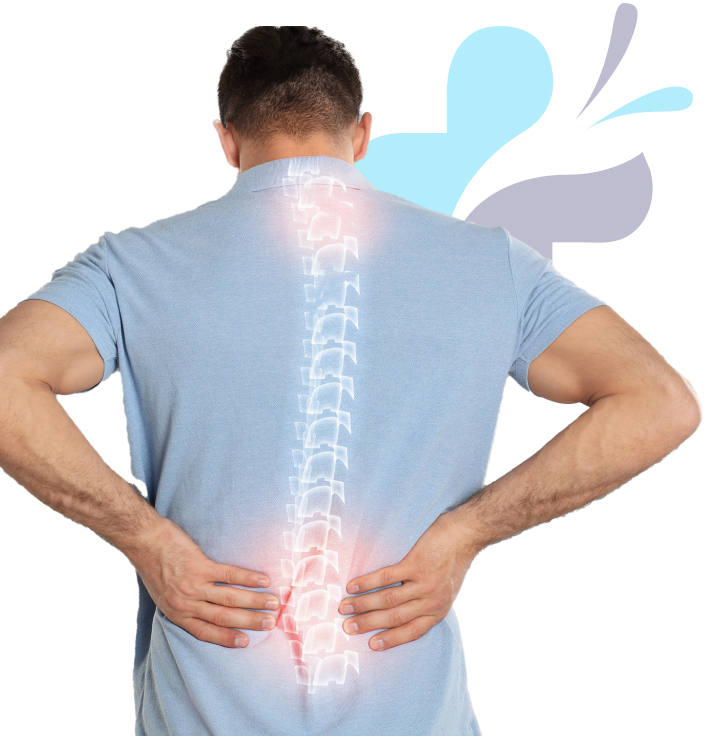
Picture yourself caught off guard, your body's integrity at stake due to a grave injury that hits your bones and muscles hard. This grim scenario speaks to orthopaedic trauma, a term that wraps up a variety of grave injuries that could flip your daily routine on its head.
These are not your typical breaks or twists. They are serious enough to demand medical pros to help steer you back to health. Let us delve into what orthopaedic trauma means, its usual triggers, and the various forms it might take. With this info, you are better armed to guard against these injuries and find fast care should trouble strike.
What is Orthopaedic Trauma?
Think "orthopaedic trauma," and you are talking about significant time harm to your musculoskeletal system. This complex network comprises your bones, joints, muscles, tendons, ligaments, cartilage, and all the connecting tissues and vessels. We are not just discussing a simple snap or stretch. This could mean multiple breaks or joints out of place that mess with your normal life and need an expert’s touch.
Let us say you are going about your business, and suddenly, you take a spill or get into a car wreck. That jolt could wreak havoc on any part of your musculoskeletal system, causing orthopaedic trauma. The extent of these injuries can swing widely, from slight cracks that might just need a cast, to graver issues that could put your life on the line and call for surgery.
If you or someone you are with gets hurt, and it might be orthopaedic trauma, getting help right away is key. Waiting around for treatment can lead to worse trouble or lasting harm. Knowing how serious these injuries can be, it is wise to be clued in on what usually sparks them as a way to keep yourself safe.
Common Causes and Risk Factors of Orthopaedic Trauma
To get the full picture of orthopaedic trauma, let us look at the top reasons it happens and what ups the danger:
- Trips and tumbles, hitting those with brittle bones especially hard.
- Car wrecks, where the strong forces often mean bad orthopaedic damage.
- Sports-related harm, particularly in full-contact games like hoops or football.
- Workplace mishaps.
- Direct hits to your body.
- Age-related conditions like osteoporosis can make bones more breakable.
- Harsh arthritis, which can mess with joint action.
- Failing eyesight can cause tripping.
- Choices in how you live, like going for risky sports.
With these insights on common causes and risk factors, we are better prepared for the unpredictable ways orthopaedic trauma can show up and the need to stay sharp about our health and actions.
How to Identify Signs of Orthopaedic Trauma
If you have had a major bone-related issue, it is vital to spot the signs of orthopaedic trauma. These clues can be plain to see or hidden, but all need your focus and often a specialist's help.
Spotting signs of orthopaedic trauma is a must. Here are the main ones to keep an eye on:
- Ache, which might be a mild throb or a fierce sting.
- Warmth and colour changes over the hurt spot.
- Puffiness and soreness when touched.
- Loss of feeling or a tight range of motion in the hurt limb or joint.
- Struggling to put weight on a leg, foot, or arm.
- Blood loss, especially with a bone protrusion, pointing to an open break
After you spot these signs, the need to get medical help fast can't be stressed enough. It is key to see a doctor rather than trying to figure it out yourself or fix it on your own.
Specific Injuries That Require Specialist Care
Some issues clearly show you need an orthopaedic expert.
- Closed breaks, where the bone is broken, but the skin is not cut.
- Open breaks, where bone pokes through the skin.
Both need a doctor’s help. Stress fractures, little splits in the bone, often from too much use, need a specialist’s touch to mend right. Malalignment of joints and overuse, like tendonitis, are also in this group.
Also Read : A Comprehensive Guide to Common Orthopaedic Disorders
Orthopaedic Trauma- Treatment and Surgeon Roles
In the ER, while a general trauma doctor focuses on getting a patient stable, your orthopaedic trauma doctor gets ready to tackle injuries linked to bones, joints, and soft body parts. They join forces with a team of various trauma experts, ensuring you get all-around care that fits your specific situation.
The world of orthopaedic trauma surgery keeps moving forward, with cutting-edge medical technology playing a big part in how you are treated. Doctors now have top-notch imaging methods for accurate diagnosis and planning.
Plus, minimally invasive surgery is more common now, giving you perks like less hurt, shorter hospital stays, and faster bounce-backs. These leaps forward show the drive to get you back to a good life as quickly and well as possible.

Preventing Orthopaedic Trauma- Strategies and Tips
Sure, accidents can happen, but there are many ways to minimise orthopaedic trauma
- Always buckle up when you are behind the wheel.
- Do not skip a helmet when biking or in sports where you could hit your head.
- Use the right protective gear in rough and tumble sports.
- Warm up before any physical effort.
- For those at greater risk, like older people or those with balance trouble, set up night lights and ramps to stop falls
Putting these safety steps into action can really lower your risk of getting hurt. But, It is just as important to know the signs of orthopaedic trauma so you can act fast if something goes wrong.
Your Next Steps After Orthopaedic Trauma
Wrapping your head around what orthopaedic trauma is all about is your first shield. The insights here lead you through spotting important signs and push you to take active steps in controlling your risk.
If you face a mishap leading to such injuries, get medical help from the best orthopaedic doctor in Chennai. Timely medical treatment is the first and best way to minimise orthopaedic trauma.
